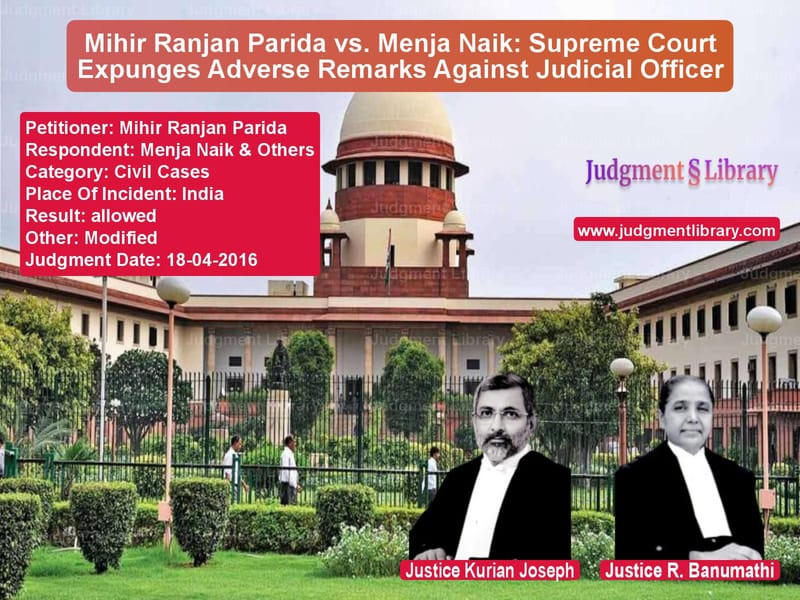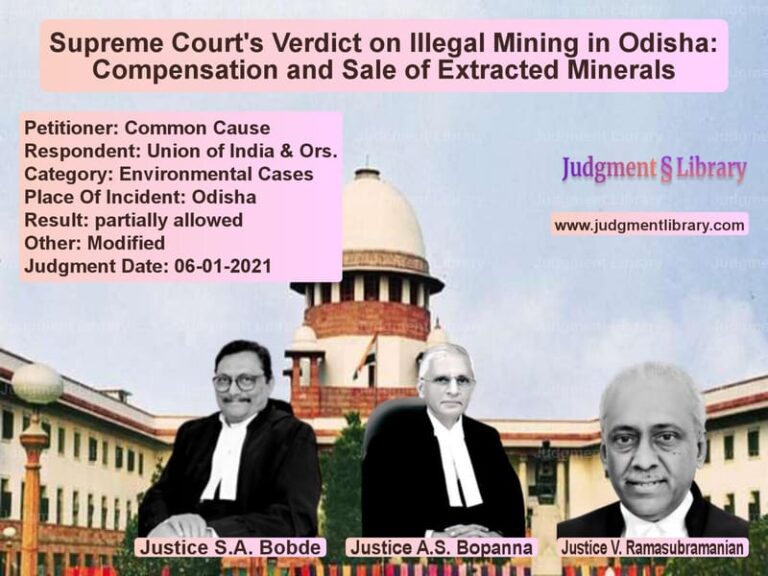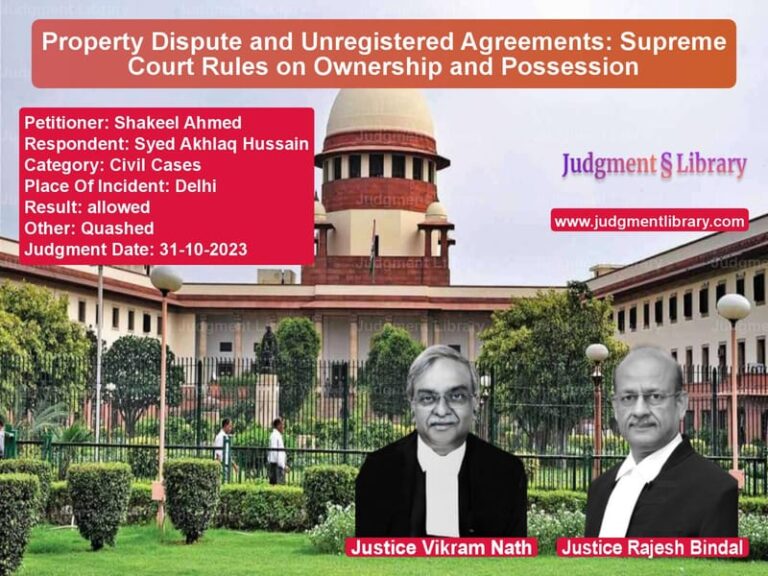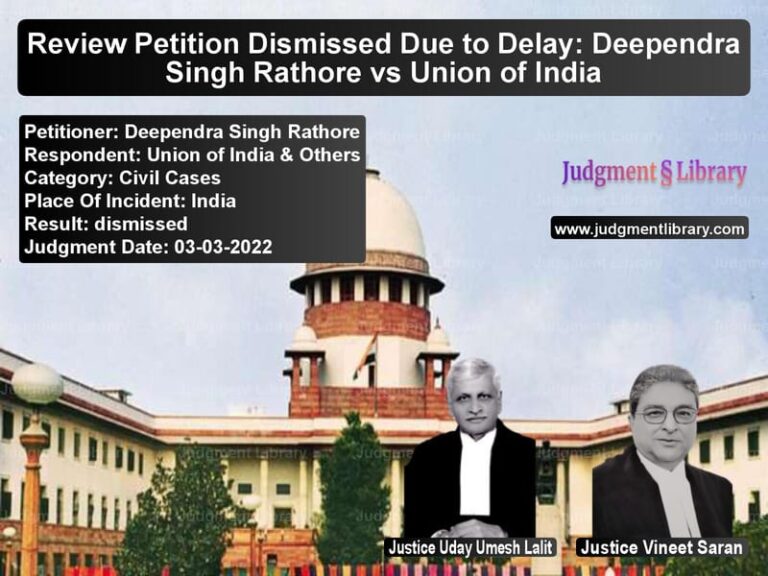Mihir Ranjan Parida vs. Menja Naik: Supreme Court Expunges Adverse Remarks Against Judicial Officer
The Supreme Court of India, in its judgment dated April 18, 2016, delivered an important ruling in the case of Mihir Ranjan Parida vs. Menja Naik & Others. The case involved a request for the expunction of adverse remarks made by the High Court against the appellant, who was the presiding judge in a trial court. The apex court ruled in favor of the appellant, emphasizing that judicial officers should not be subject to personal criticism for passing orders in their judicial capacity, even if the order is incorrect.
Background of the Case
The appellant, Mihir Ranjan Parida, was a presiding judge in a trial court. During the course of proceedings, he passed an order that was subsequently challenged before the High Court. The High Court, while deciding the matter, made certain adverse remarks against the appellant, criticizing his judicial conduct. The appellant approached the Supreme Court, seeking to have these remarks expunged.
Legal Issue
The key legal issue before the Supreme Court was whether the adverse remarks made by the High Court against a judicial officer for passing an allegedly incorrect order should be expunged.
Petitioner’s Arguments
- The adverse remarks made by the High Court were unwarranted and unnecessary.
- The appellant was acting within his judicial capacity, and even if the order was incorrect, it should not have resulted in personal criticism.
- Judicial officers should be protected from unwarranted criticism to maintain their independence and integrity.
Supreme Court’s Observations
The Supreme Court observed that making adverse remarks against a judicial officer for passing an incorrect order was not justified. The court noted:
“May be the Judge passed a wrong order; but that does not mean that even wrong order should be visited with such adverse remarks.”
The court emphasized that judicial officers perform their duties based on their understanding of the law and facts presented before them. Any mistakes in judgment should be addressed through the appeals process rather than personal criticism.
Supreme Court’s Ruling
The Supreme Court allowed the appeal and ordered the expunction of all adverse remarks made against the appellant in the High Court’s order. The ruling set an important precedent regarding the protection of judicial officers from unwarranted personal criticism.
Key Takeaways
- Judicial Independence: The ruling reaffirmed that judges should be free to pass orders without fear of personal criticism.
- Proper Review Process: If a judicial order is incorrect, it should be corrected through the appeals process rather than through personal remarks against the judge.
- Protection of Judicial Officers: The judgment emphasized the importance of protecting judicial officers from unwarranted remarks to maintain their confidence and impartiality.
Conclusion
The Supreme Court’s ruling in Mihir Ranjan Parida vs. Menja Naik is an important decision that upholds the dignity of the judiciary. By expunging the adverse remarks, the court reinforced the principle that judicial officers should not be personally criticized for their decisions. This judgment ensures that judges can perform their duties without fear of personal repercussions, strengthening judicial independence in India.
Don’t miss out on the full details! Download the complete judgment in PDF format below and gain valuable insights instantly!
Download Judgment: Mihir Ranjan Parida vs Menja Naik & Others Supreme Court of India Judgment Dated 18-04-2016-1741854678474.pdf
Direct Downlaod Judgment: Direct downlaod this Judgment
See all petitions in Contract Disputes
See all petitions in Damages and Compensation
See all petitions in Specific Performance
See all petitions in Judgment by Kurian Joseph
See all petitions in Judgment by R. Banumathi
See all petitions in allowed
See all petitions in Modified
See all petitions in supreme court of India judgments April 2016
See all petitions in 2016 judgments
See all posts in Civil Cases Category
See all allowed petitions in Civil Cases Category
See all Dismissed petitions in Civil Cases Category
See all partially allowed petitions in Civil Cases Category







